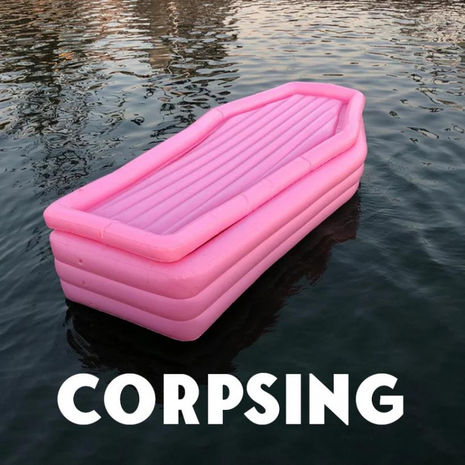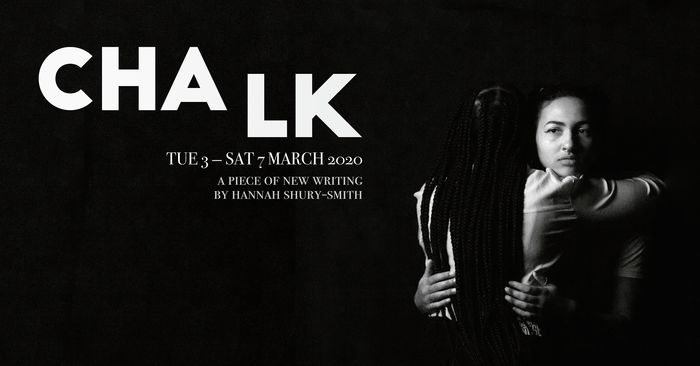Corpsing is a real, humorous look at death across cultures
Writers Shameera Lin and Jamie Hancock talk to directors Charissa and Olivia about their shared experiences of the absurdity of grieving.

Corpsing has an unusual selling point: its protagonist, Christina, dies before the first line. From there, we’re thrown into a whirlwind of absurd, bitter comedy as tensions rise between her British and Malaysian families. Christina is still very much in her body – and she can’t believe what she is seeing.
As a writing duo, Shameera Lin and Jamie Hancock are also unusual: Shameera is Malaysian of mixed heritage and Jamie is a white guy from Hampshire. Yet, in a twist of fate, Corpsing’s directors parallel the writers uncannily. Charissa Cheong is Malaysian-born and of the same heritage as Shameera. Olivia Railton is, well, white and British. Hence, we asked the writers to talk with their director-doppelgängers about why death can be so sadly funny.
Charissa & Shameera
Imagine this: an open coffin funeral, exposing the deceased’s corporality. All kinds of gawking ensue. The atmosphere befits an awkward Christmas dinner no-one wants to attend. iPhones are whipped out to snap photos of the body, coupled with panoramic videos of the procession.
Ridiculously, Charissa and I discover we share this experience of funerals back in Malaysia. During our conversation, I realise this is one of many things we have in common. Charissa explains that Corpsing feels like ‘an alternate version’ of her experiences surrounding death and its aftermath. I am struck profoundly by how mine and Jamie’s script has inspired such dedication and personal connection for Charissa, who believes this to be the closest she’s felt to anything she’s worked on at Cambridge.
"Corpsing is a humorous, yet real, way of giving my grandmother a last goodbye"
For myself, Corpsing has been a way to come to terms with personal grief, having lost my grandmother in 2015. I found her funeral epiphanic, despite my young cousin almost dropping a candle on grandma during a Hindu ceremony. Her funeral was Hindu mainly due to a cultural assumption and expectation that my grandmother would’ve wanted it that way. Charissa sees her experiences reflected similarly in Corpsing’s exploration of these kinds of presumptions regarding the desires of the deceased. Our protagonist watches as her Malaysian-Indian mum and white British dad go to extremes to make a send-off they believe she would’ve wanted.
In the spirit of keeping it real, I haven’t held back from writing lines in Cantonese, Malay, and Malayalam – I can’t wait to see how languages likely to be ‘lost in translation’ for a Cambridge audience come across in other aspects of the performance. For Charissa and myself, the play has been an earnest way to appreciate, articulate and embrace our heritage, grief and its subsequent effects.
In her final years, I spent all my time with my grandmother attempting to make her laugh with my shoddy Tom Jones and Elvis impressions. Corpsing is a humorous, yet real, way of giving her a last goodbye she would have – or at least, I hope she would have – loved. More generally, it is about understanding death across two distinct cultures, without compromising on their entanglements.
Olivia & Jamie
Like Charissa and Shameera, Olivia and I realise we share a surprising amount regarding death. Because, it turns out, English people aren’t very good at talking about it. Or processing their emotions about it. Or doing emotions at all, sometimes. In a way, the play has become a way for both of us to externalise these feelings. I’ve been haunted by the (after)life it’s developed in Olivia and Charissa’s hands – particularly when Olivia described her conversations with Charissa, going over her own family’s silences and funeral politics.
"We feel that death is too important to be taken so seriously"
I thought immediately of my grandparents’ funerals and how alien their formality felt. Neither I nor Olivia knew what we should say or do or feel; the subject was too taboo to even make sense of. We agree that traditionalism in English funerals can be ways of coping – the kind which can lead people to splurge money on ornate wooden boxes, read religious extracts they don’t believe in and follow a man in a top-hat strutting down the street with a cane. It’s comforting to know how common that experience is.
It’s also reassuring to know that someone else shares our twisted sense of humour. Because – get ready – funerals are funny. And awkward. And painful. They can be all of these in a single moment. According to Olivia,
“When my granddad collapsed, I was playing on my Tamagotchi. Twelve hours passed before he died. Afterwards, I found my Tamagotchi again – screaming at me – just as it was dying. So my grandad and my Tamagotchi died at the same time”.
That is the tone we are going for. When Shameera and I started talking, we realised how much absurdity exists in how people (mis)handle the dead. We feel that death is too important to be taken so seriously – and that by laughing about it, we can work through experiences which have otherwise been buried.
 News / Caius mourns its tree-mendous loss23 December 2025
News / Caius mourns its tree-mendous loss23 December 2025 Comment / Yes, I’m brown – but I have more important things to say22 December 2025
Comment / Yes, I’m brown – but I have more important things to say22 December 2025 News / Cambridge welcomes UK rejoining the Erasmus scheme20 December 2025
News / Cambridge welcomes UK rejoining the Erasmus scheme20 December 2025 News / CUP announces funding scheme for under-represented academics19 December 2025
News / CUP announces funding scheme for under-represented academics19 December 2025 News / King appoints Peterhouse chaplain to Westminster Abbey22 December 2025
News / King appoints Peterhouse chaplain to Westminster Abbey22 December 2025










